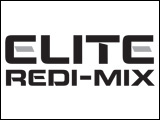I was born in the West where, in my early years, I was known as “Jackie.” Being “western,” I absorbed western notions about Christianity in the little country church I attended with my family. I came to accept Augustine’s view of “original sin,” Calvin’s “total depravity,” and Luther’s imagery which depicts “human beings as a pile of manure, covered over by Christ.” As I have often shared in these writings, I was traumatized by such notions of foundational damnation. Even though my sincere mentors tried to pile a positive view of salvation on top of such a negative view of the human condition, it never did really work for me.
For most of my life I have wrestled my way toward a more positive view of God and humanity. It was tough slugging in a western environment so fixated on the wrath of God against hell-bound sinners who refuse to repent of their evil ways. Here and there, and from time to time, I was able to find more positive ground to stand on. But it has only been in the last few decades that I have come to understand that looking eastward greatly increases my chances of finding solid footing I can trust more fully.
My first conscious exposure to the Eastern Orthodox way of thinking had to do with the concept of the Trinity. In the West, talk of the Trinity had to do mostly with questions of substance, essence and nature of the Father, Son and Holy Spirit. In the East, Trinity was thought of as an Infinite Dynamic Flow, a relationship, a waterwheel of always outpouring love. Father, Son and Spirit relate to one another through infinite outpouring and infinite receiving; a holy community into which I am welcomed. This is the view of the trinity portrayed in Paul Young’s book, The Shack (2007). While some in the West found great fault with it, for me it was like a breath of fresh air.
The East also gave me a new and more dynamic way to think about the nature of Christ. Christ was seen as, “the living icon of the eternal union of matter and Spirit in all of creation.” Jesus was fully human and fully divine but mystically unified in the one nature of Christ. The Council of Chalcedon in 451 A.D. rejected this view and held to two distinct natures in Jesus instead of a synthesis. The East did not accept this decision claiming that such a sharp distinction between matter and Spirit was based more on Greek philosophy than Scripture. Jesus had come to infuse and enliven matter, including us as humans. So I now understand that matter is not evil, as I once thought. Indeed, matter matters to God.
In the East, church fathers also developed the concept that one of Christianity’s central goals was healing from sin. In other words, sin was thought of as a broken relationship or an addiction that required healing, not punishment. In the West, especially after the 13th century, sin was “criminalized” and the confessional was instituted as a legal structure. This notion of sin has transferred into most western protestant churches; sin is a crime, making you guilty and punishable – the ultimate punishment being conscious, eternal torment in hell. It is interesting to note that the 12-Step Program, developed in the West to combat various forms of addiction, draws on the Eastern notion of sin as addiction that needs healing. I can only imagine how my traumatic youth might have been different if my “sins” had been treated as an addiction needing healing instead of a crime requiring punishment.
Another Eastern contribution to my faith journey has been the teaching of Theosis, which holds that we can experience real and transformative union with God. “Participating in the divine nature” (2 Peter 1:4), “And we shall be like him” (I John 3:2) are passages that create hopeful and joyful anticipation of mystical union with God. Of course this does not mean that we become God, or that we are perfectly whole. But it does mean that we can find our True Selves, not by denying our human nature but by fulfilling it in the divine life. I am invited to “participate” in the divine dance of the Trinity. I was schooled to think of “being in Christ” and “Christ being in me,” but also that in essence we remain definitively separate entities. Theosis has the courage to allow for a blurring of the line of separation as we begin to participate in the nature and life of God. This is a great mystery with a lot of implications spiritual growth.
And finally, Eastern thinking has affirmed my long journey toward at least the hope of “universal restoration.” It now seems puzzling to me that in the West we have either ignored or downplayed the many biblical passages that point toward “a restoration of all things in Christ.” Just a few examples are Acts 3:21, I Corinthians 15:28, Romans 8: 19-21, Ephesians 1:10 and Philippians 2:10-11. Instead we have promoted the image of God as a petty tyrant less loving than most people we know. It seems that in the West our dualistic minds have rendered us largely incapable of imagining any notion of grace as being infinite. The Eastern Church is helping us to overcome that inability. At least that is how it has worked for me.
So, since my days as “Jackie,” I have come to the realization that my quest for deeper truth has drawn me, by accident or providence, into the orbit of the Eastern Church through the back door. I am beginning to understand why one of my mentors, Brad Jersak, has found a spiritual home within the Eastern Orthodox Church. Of course it is not a perfect church, but at least at its heart it offers a more positive and life-giving theological foundation than my roots in American evangelicalism ever gave me.



